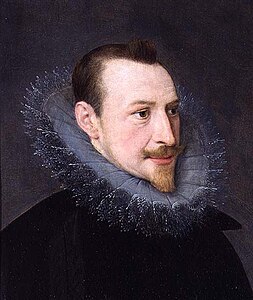Analysis of Poem 97
Edmund Spenser 1552 (London) – 1599 (London)
THe wanton boy was shortly wel recured,
of that his malady:
But he soone after fresh againe enured,
his former cruelty.
And since that time he wounded hath my selfe
with his sharpe dart of loue:
And now forgets the cruell carelesse elfe,
his mothers heast to proue.
So now I languish till he please,
my pining anguish to appease.
| Scheme | AAAABCBDEE |
|---|---|
| Poetic Form | Tetractys (30%) |
| Metre | 010111011 111100 11110111 11010 0111110111 111111 01010111 110111 11110111 11010101 |
| Closest metre | Iambic pentameter |
| Characters | 328 |
| Words | 62 |
| Sentences | 4 |
| Stanzas | 1 |
| Stanza Lengths | 10 |
| Lines Amount | 10 |
| Letters per line (avg) | 26 |
| Words per line (avg) | 6 |
| Letters per stanza (avg) | 261 |
| Words per stanza (avg) | 60 |
Font size:
Submitted on May 13, 2011
Modified on March 14, 2023
- 18 sec read
- 76 Views
Citation
Use the citation below to add this poem analysis to your bibliography:
Style:MLAChicagoAPA
"Poem 97" Poetry.com. STANDS4 LLC, 2024. Web. 28 Apr. 2024. <https://www.poetry.com/poem-analysis/9196/poem-97>.


Discuss this Edmund Spenser poem analysis with the community:
Report Comment
We're doing our best to make sure our content is useful, accurate and safe.
If by any chance you spot an inappropriate comment while navigating through our website please use this form to let us know, and we'll take care of it shortly.
Attachment
You need to be logged in to favorite.
Log In